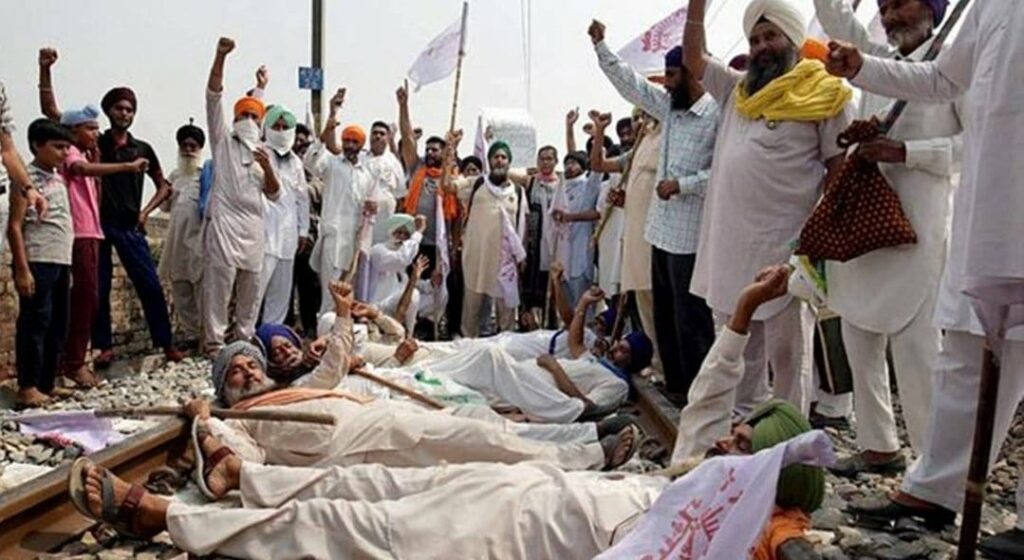INDIA. New Delhi. Honourable President of India, Ram Nath Kovind cleared three contentious Farm Bills on Sunday. These bills have triggered widespread protests by farmers especially in Punjab, Haryana, and some part of Uttar Pradesh.
The three bills that have been passed by the president of India are, The Farmers’ Produce Trade and Commerce (Promotion and Facilitation) Bill-2020, The Farmers’ Agreement of Price Assurance and Farm Services (Empowerment and Protection) Bill-2020, and The Essential Commodities (Amendment) Bill-2020.
These bills have created confusion among the farmers across India. Meanwhile, the oppositions’ leaders have called these bills ‘Draconian’. They have termed these bills as anti-farmer and anti-development.
Bills intended to provide farmers more choice and competition
The bills are aimed to change the way agricultural produces are marketed, sold, and stored across the country. These were initially issued in the form of ordinances in June. They were then passed by both the Lok Sabha and the Rajya Sabha. In spite of vociferous protest by the opposition, bills have been passed in delayed monsoon session in the parliament.
Farmers’ Produce Trade and Commerce (Promotion and Facilitation) Bill, 2020, allows farmers to sell their harvest outside the notified Agricultural Produce Market Committee (APMC) mandis (markets) without paying any state taxes or fees.
The Farmers (Empowerment and Protection) Agreement on Price Assurance and Farm Services Bill, 2020, facilitates contract farming and direct marketing.
The Essential Commodities (Amendment) Bill, 2020, deregulates the production, storage, movement and sale of several major foodstuffs. This includes cereals, pulses, edible oils and onions, except in the case of war, famine and natural disasters.
Read also: West Bengal Chief Minister Mamata Banerjee Condemned The Suspension Of 8 Rajya Sabha MPs
The government has high hopes that the new laws will provide farmers with more choice and competition leading to better prices. They also opine that it will usher a new era of private investment in agricultural marketing, processing and infrastructure
Farmers’ concerns
The prime concern of farmers is the status of Minimum Selling Price (MSP). MSP is the minimum selling price of agricultural produce at which the government is committed to purchasing it.
Current bills are bringing corporate or big private buyers into the picture. Small farmers fear that they can not deal with these buyers as they can not fight legal battles with the buyers.
In such a scenario, farmers want the government to guarantee purchase on this MSP. In line with the 2006 Swaminathan report, farmers want a law for MSP to be at least 50% more than the weighted average cost of production. Moreover, if the MSP is not paid, it should be fined.
More than 50,000 protest
Lok Sabha MP Harsimrat Kaur Badal, the Union Minister for Food Processing, resigned in protest of these bills. Amid the passage of votes, severe opposition led to the suspension of eight Rajya Sabha MPs. Some opposition parties called it the “murder” of democracy.
BJP’s oldest ally, Shiromani Akali Dal, has also quit NDA government, registering their dissent in the Farmers’ Bills. On 25 Sept, more than 50,000 farmers protested against the bills. Farmers of Punjab and Haryana blocked the highways and railroads.
On Monday morning, a tractor was torched in front of India Gate, New Delhi. Five people were detained in regard to this destructive incident. Following the New Delhi outburst, massive protests have also started in Karnataka where a state-wide lockdown is being observed.
Farmers are supported by several pro-Kannada organisations, opposition Congress and the Janta Dal (JD(S)), who had opposed the amendment bills in the assembly.

With each progressing day, the protests are becoming more violent and vehement. The government must sit together with farmers to convince them and if possible restructure these bills.




Comments are closed.